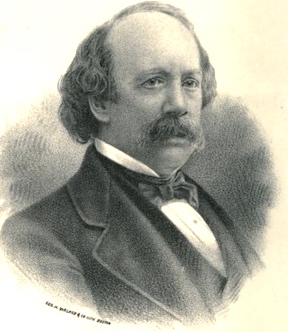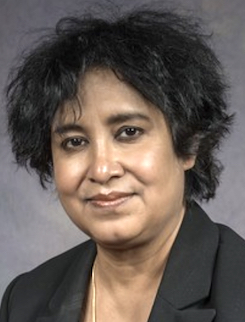August 25
Horace Seaver

On this date in 1810, Horace Seaver was born in Boston. At age 28, he became a compositor at The Boston Investigator and learned the craft of printing. Seaver also began writing editorials under the name “Z.” The Investigator had been launched in 1830 by Abner Kneeland as a weekly, becoming the most effective and prominent freethought newspaper in the U.S., continuously published until 1904 when it merged with The Truth Seeker. When Kneeland, who had been prosecuted for blasphemy more than once, resigned, Seaver was selected to become its editor.
He edited the paper for the next half-century, promoting freethought, the working class and other secular reforms. He wrote Occasional Thoughts of Horace Seaver from Fifty Years of Free Thinking (1888). When his freethinking wife died, Seaver held a “social funeral,” an innovative model of the modern secular memorial service. When Seaver himself died, his funeral oration was given by the great 19th-century freethinker Robert G. Ingersoll. (D. 1889)
“We have secured some political freedom — I mean for such of us as have white complexions and are sound in the faith — but with regard to mental freedom, we are to the present hour almost literally in bondage to this potent spell, Authority. Men and women really dare not think for themselves, because they are fearful of some book or some church, some sect or some creed, that stands in the way.”
— Remarks by Seaver at the Free Convention in Rutland, Vermont (July 21, 1858)
Taslima Nasrin

On this date in 1962, freethinker, atheist and feminist Taslima Nasrin was born in Mymensing, Bangladesh, to a Sufi physician and a devoutly religious mother. Nasrin later became the target of a series of fatwas, or religious sanctions, condemning her to death for blasphemy.
“I came to suspect that the Quran was not written by Allah but, rather, by some selfish, greedy man who wanted only his own comfort,” Nasrin explained in her speech accepting a Freethought Heroine Award at the 25th annual FFRF convention in 2002. “So I stopped believing in Islam. When I studied other religions, I found they, too, oppressed women.” She has often stated, “Religion is the great oppressor, and should be abolished.”
Nasrin earned an MBBS degree in 1984 and worked in gynecology and anesthesiology departments in medical colleges and universities. Her books of poetry began being published in the late 1980s, then she started writing popular columns on women’s rights in newspapers and magazines, which were collected in book form. In 1992, she received the prestigious Indian literary award “Ananda” for her book of essays. Nasrin reports that Islamic fundamentalists started campaigns against her by 1990, with demonstrations escalating over the next few years, including having her books burned at the national book fair.
When the novella “Shame” came out in 1993, about the plight of Hindus under Muslim order, it was banned, she was attacked at the national book fair, the first of three fatwa was issued, and a bounty on her head was offered. The Bangladeshi government brought criminal charges against her for defaming the Muslim faith the following year. Thousands in Bangladesh demonstrated regularly, sometimes daily, demanding her death. After a terrifying two months in hiding, and fearing the fate of Hypatia, Nasrin fled Bangladesh, seeking refuge in Sweden.
In a 1994 interview with The New Yorker, she said, “I want a modern, civilized law where women are given equal rights. I want no religious law that discriminates, none, period — no Hindu law, no Christian law, no Islamic law. Why should a man be entitled to have four wives? Why should a son get two-thirds of his parents’ property when a daughter can inherit only a third?”
Nasrin, a “woman without a country,” has also lived in France, the U.S. and Germany, living, for the most part, in India.
Among the dozens of awards and honorary doctorates she has received is the Sakharov Prize (1994). In addition to receiving FFRF’s 2002 Freethought Heroine Award, she was the recipient in 2015 of its Emperor Has No Clothes Award and said, “Islam is not compatible with human rights, women’s rights, freedom of expression and democracy.” She has continued to lecture, speak out and write, including a multi-book autobiography.
PHOTO: Nasrin at FFRF’s national convention in 2015; Ingrid Laas photo.
“There has always been a marked conflict between religion and science, and every time science emerges as the winner, as science bases itself on facts, not faith. It supports what is tested and is true and truth cannot be hidden by lies for a very long time. To abolish all kinds of hypocrisy from my country, we need more atheists to speak the truth.”
— Nasrin, accepting the Emperor Has No Clothes award in 2015
